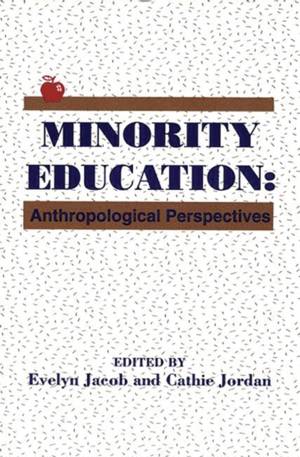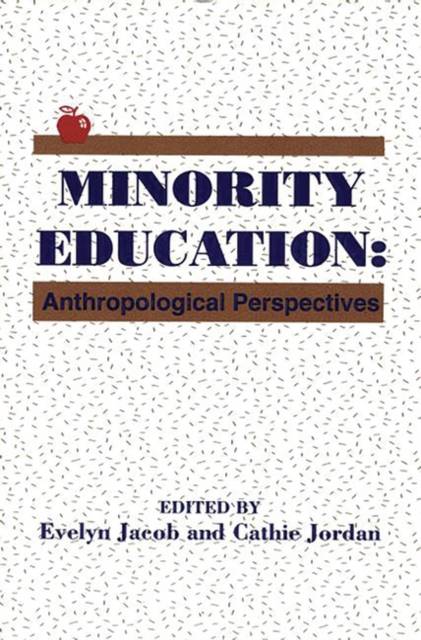
- Afhalen na 1 uur in een winkel met voorraad
- Gratis thuislevering in België vanaf € 30
- Ruim aanbod met 7 miljoen producten
- Afhalen na 1 uur in een winkel met voorraad
- Gratis thuislevering in België vanaf € 30
- Ruim aanbod met 7 miljoen producten
Zoeken
€ 161,45
+ 322 punten
Uitvoering
Omschrijving
This volume brings the perspectives of educational anthropology to the consideration of the education of ethnic and linguistic minority students and to the challenges often associated with that enterprise. Built around a core of chapters originally published in the Anthropology and Education Quarterly, which presented two major anthropological perspectives on school success and failure for minority students, focuses on the cultural difference approach and the discontinuity approach. Each is represented by a theoretical chapter and two case studies. Chapters contrast anthropological and nonanthropological perspectives on minority education, outlining key concepts and methods in educational anthropology for readers who may be unfamiliar with the field. A later section offers recent modifications or additions to the two major perspectives. These chapters examine the role of parents and community in minority education, call attention to the cultural groupings that an form in response to the school context itself, focus attention on children as active decision-makers in school, and question the validity of the whole conceptualization of school success and failure. Concluding chapters on applying anthropological perspectives to policy and practice.
Specificaties
Betrokkenen
- Auteur(s):
- Uitgeverij:
Inhoud
- Aantal bladzijden:
- 292
- Taal:
- Engels
- Reeks:
Eigenschappen
- Productcode (EAN):
- 9780893918682
- Verschijningsdatum:
- 1/01/1993
- Uitvoering:
- Hardcover
- Formaat:
- Genaaid
- Afmetingen:
- 152 mm x 229 mm
- Gewicht:
- 557 g

Alleen bij Standaard Boekhandel
+ 322 punten op je klantenkaart van Standaard Boekhandel
Beoordelingen
We publiceren alleen reviews die voldoen aan de voorwaarden voor reviews. Bekijk onze voorwaarden voor reviews.











